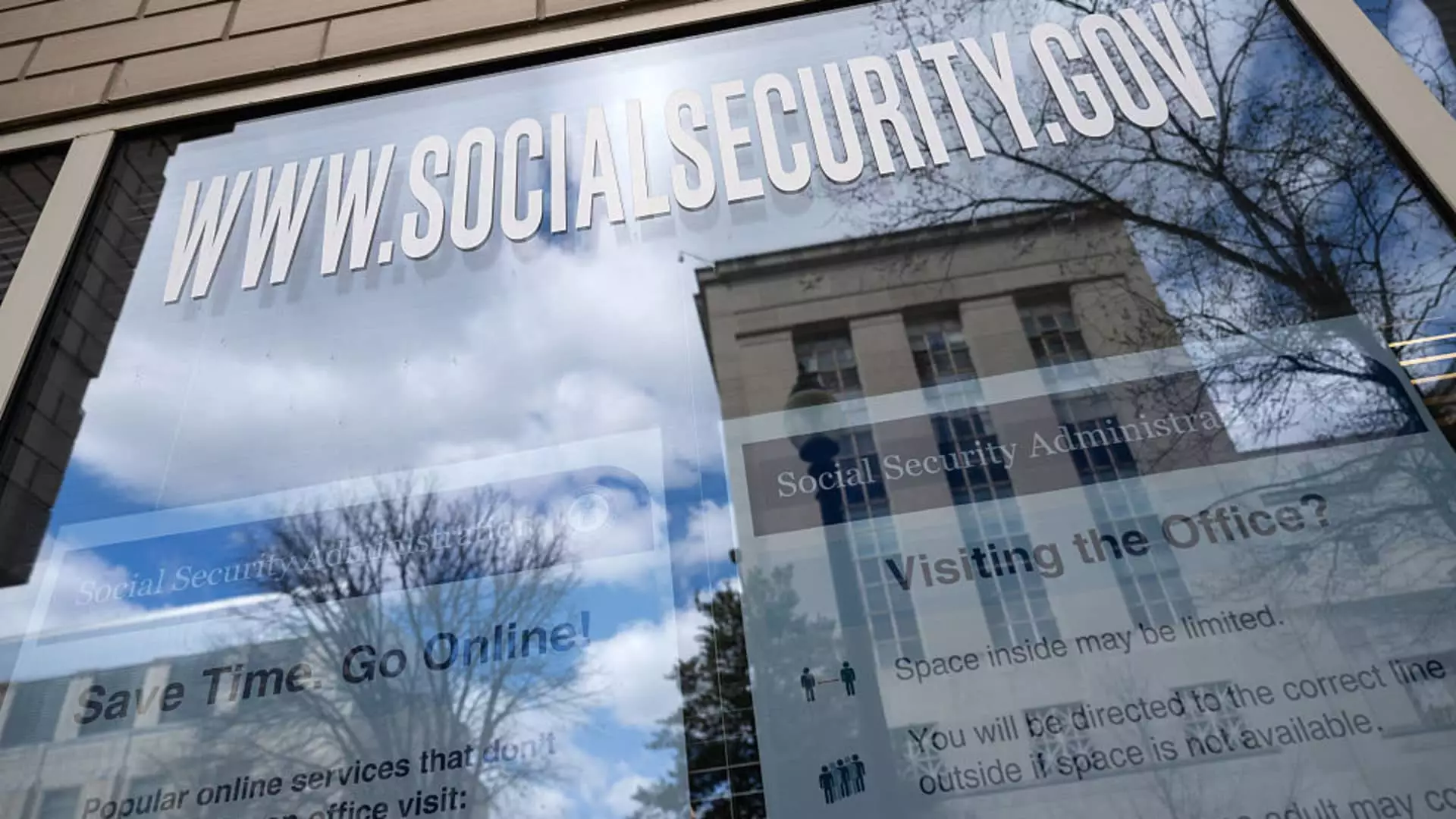The crumbling foundation of Social Security is becoming an undeniable truth that should alarm every American worker. A recent report from the Social Security Board of Trustees warns that the trust fund, which supports retirement benefits, could entirely run out by 2033. This is not a minor issue that can be shoved aside; it directly impacts the financial future of millions who have contributed to this social safety net throughout their careers. Under the current projections, by the time we reach that date, a staggering 77% of the promised benefits will still be payable—a significant decline from full capacity and a harbinger of tough choices ahead.
The urgency is even more pronounced when considering the combined entities of the Old-Age and Survivors Insurance Trust Fund alongside the Disability Insurance Trust Fund. Their funding lifeline is projected to last only until 2034, a full year sooner than previously feared. How did we reach this precarious position, and how long can we afford to sweep this issue under the rug? The answer lies in a toxic mix of legislative inertia and dwindling political will.
The Political Quagmire
In a landscape rife with partisan division, the essential discussions around fixing Social Security’s funding crisis have become mired in political deadlock. Democrats and Republicans alike are digging in their heels, unable to forge a consensus on whether to raise taxes or cut benefits to rejuvenate this crucial program. This paralysis is both a collapse of governance and a failure of ethical stewardship for future generations. While there may be disagreements over methodology, the shared insistence on protecting Social Security as it stands is overwhelmingly echoed by the populace, to the tune of a reported 85% approval from those surveyed.
Despite its popularity among constituents, the fate of Social Security seems to hang in a delicate balance, constantly threatened by the tug-of-war between opposing party lines. This is not just a statistic; it’s indicative of a broader crisis in political will that risks sidelining one of the most critical safety nets for American families.
Public Resistance to Cuts
The American public is unequivocal on one thing: they’re not interested in cuts to their hard-earned benefits. The data reveals a palpable desire to maintain Social Security in its current form and even enhance it. In a noteworthy survey, a predominant number of participants lean toward solutions involving increased contributions, particularly from those who make more than $400,000 a year. The notion of eliminating the payroll tax cap on affluent earners has gained traction, signifying a growing consciousness about fairness and equitable funding of the program.
Yet legislative mechanisms seem sluggish and resistant to change. This stubbornness could lead us into a future where immediate sacrifices are required, and the pressure on lawmakers will only intensify as our demographic shifts toward an older population. So why are lawmakers so hesitant to act? Is it fear of campaign backlash, or is it an ineptitude in recognizing the urgency of the matter?
The Call for Action
As the clock ticks on the solvency of Medicare—another fiscal pillar for retirees—the mounting crisis requires both parties to get their acts together. Advocacy groups like AARP and other coalitions echo a desperate call for reform, reminding Congress that people are counting on Social Security. The implications are not just political; they speak to the core values of fairness and responsibility that should underpin our social contract: when you pay into the system, you deserve to receive the promised benefits.
It is particularly concerning that this report did not accommodate current tax proposals, tariffs, and immigration shifts that could inflict even greater financial strain on Social Security’s coffers, as noted by experts. The potential havoc these factors could wreak underscores the need for a comprehensive and forward-thinking approach that does not shy away from raising necessary revenues.
The Future Is at Stake
To simply brush aside the impending insolvency of Social Security would not only be irresponsible but fundamentally unjust. The stakes are extraordinarily high, with approximately 70 million Americans relying on these benefits. It isn’t merely a fiscal issue; it’s a question of moral integrity in how we support our fellow citizens during their most vulnerable years.
Faced with a looming deadline, lawmakers need to adopt a proactive strategy rather than waiting until these benefits are drastically slashed or overly taxed. The conversation surrounding Social Security must transcend partisan squabbles and recognize its vital importance to millions; anything less would represent a grievous negligence of responsibility. The time for talk is over—the moment for decisive action has arrived.

